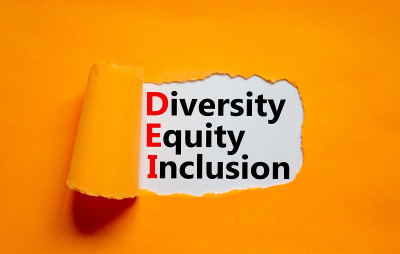Why elitist DEI programs really neglect poor minorities

Lately, programs known to promote Diversity, Equity and Inclusion, also known as DEI, have been the reason for frequent high-profile negative news emerging from Ivy League controversies tied to DEI-tainted appointments and SAT-less student-admission policies. Consequently, DEI, in its elitist form is slowly retreating from the Ivy League and other prominent universities.
For example, SAT scores are being restored as a requirement for some university admissions.
And some Ivy League universities are also now in the process of redoing their DEI-inspired appointments given the backfire of such top-level university appointments.
Elitist DEI programs and initiatives are retreating in the corporate world too.
Why?
Because elitist DEI solutions do not solve the intrinsic problems they claim are holding back poor minority communities.
Today DEI has no time for K-12 education of minorities
The city of Oakland, Calif., with typical inner-city problems, recently got California Governor Gavin Newsom's attention. Politico’s article, California sends reinforcements as crime surges in Oakland, describes the unhealthy, crime-infested city that cannot be conducive to K-12 education of children in this minority-dominated city.
Yet, in cities such as Oakland, we rarely hear about elitist DEI programs devoted to helping minority children excel in K-12 education. The lack of success in K-12 education is the source of life-long problems that constrain our minority communities and their children.
The lack of IVY-League education is not what constrains them.
Speaking of K-12 students from low-income families, a Hanover Research publication, 2022 State of Diversity, Equity, and Inclusion in Public Schools Report, said this:
Low-income students Other students
1. Percent proficient in English (ELA*) & math 36-39% 58-63%
2. Percent enrolled in advanced courses 31% 49%
3. Percent achieved 3.0 GPA** 51% 67%
(*ELA = English Language Arts, includes reading, writing and speaking)
(** assuming student performance grades are honest, not bumped up)
The above data shows that minority children are vastly underperforming in K-12 at the national level. What is worse is the fact that the above national averages underestimate the severity of the underperformance of minority students in inner cities such as Oakland with a high concentration of poor minority families and single-parent homes.
The consequences of underperforming in K-12
The above table based on 2019 data, before COVID disrupted schools, shows how low-income students do when compared to others. These children who are falling way behind in K-12 education are technically “illiterate” at the age of 18, which is an acute disadvantage for their entire adult life — they may be unemployable. Without employment, they will lack the ability to put food on the table for the rest of their lives, and consequently, a life of crime may become attractive to them. The underperformance of poor minority students in K-12 deserves the attention of DEI proponents.
For inexplicable reasons, DEI proponents do not offer any commendable service to the community of poor, minority K-12 students to enable them to excel in school and become literate.
Wanted: A DEI program for poor minority children
Proponents of DEI, if they choose to help the poor minorities in inner cities, could recruit and enable non-profits and local churches to offer programs that could help public school children from low-income families through free after-school tutoring, while their parents receive training to motivate and enable their children excel in education. A good working example is the Our House program run by volunteers and located strategically next door to low-income project housing in Auburn, Ala.
In her review of the new book Leading from the Margins: College Leadership from Unexpected Places,by Dr. Mary Dana Hinton, president of Hollins University,reviewer Susan Greenberg says this about the author and university president.
“The child of a poor single mother in rural North Carolina, Hinton was marginalized by race, gender, socioeconomic status and geography. She credits her mother’s drive, courage and commitment to education with inspiring her to attend Williams College and ultimately pursue a Ph.D...”
I can relate to this. My mother, born in rural India around 1920, had a tough childhood and lost her mother at age 1, but taught me, “Hard work and education will take you anywhere you want to be.” She was right. Hard work and education can lift minority children out of their poor, crime-ridden neighborhoods and fulfill their parents’ wholesome aspirations for their children.
DEI programs need an update. What should the updated DEI programs do? We need DEI programs that could help parents motivate and enable the success of struggling K-12 students in minority communities through after-school tutoring and related programs.
Let us hope and pray that, as the years pass, DEI programs’ focus will change from crashing the gates of Ivy League campuses to uplifting poor, underperforming minority students in K-12 for making tangible, long-term differences in our minority communities.
Actively engaging local non-profits and churches should be the way to go.
Paul Swamidass, PhD, is Professor Emeritus, Harbert College of Business, Auburn University, Auburn, AL, USA. He retired from Auburn University in 2016. Two of his many books are: Engineering Entrepreneurship from Idea to Business Plan, Cambridge University Press, 2016; and Greater Things: Qualifications of a Biblical Leader, Vide Press, 2020. LinkedIn




























